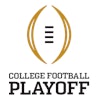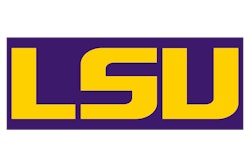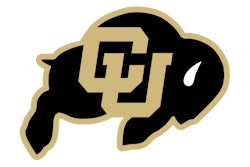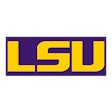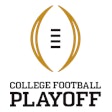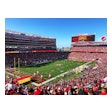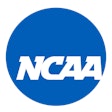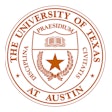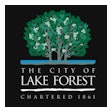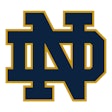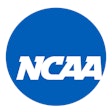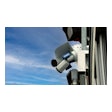Copyright 2017 Gannett Company, Inc.
All Rights Reserved
USA TODAY
Aerial photographs of soccer fields in Cuba were once enough to sound the alarm.
"Cubans play baseball," warned a CIA consultant in 1970 after studying U.S. satellite images. "Russians play soccer."
That was then on the island, soccer is now. Parks, empty lots and alleyways that were once home to baseball in and around Havana have been taken over by pickup or organized soccer games. Baseball aficionados say the shift began a decade ago and could have a major effect on a nation that has seen its top baseball talent defect -- often under perilous conditions -- to sign lucrative contracts with Major League Baseball teams.
"I'd been told it was happening, but until you see it with your own eyes, you can't believe it," says Milton Jamail, the author of Full Count: Inside Cuban Baseball, who has been to the island 10 times, most recently in January. "You always hear that baseball is Cuba's game. But it is clearly not the only sport that has captured the attention of young men on the island."
Reasons for this sports shift might sound familiar to U.S. fans:
Baseball moves too slowly, especially on television.
Soccer only requires a ball, while baseball equipment can be too expensive.
Baseball in Cuba is often viewed as the sport of the older generation.
Perhaps as a sign of the times, Team Cuba failed to get out of pool play in the World Baseball Classic. Netherlands eliminated Cuba 14-1 on March 15.
Despite such struggles, they have been playing baseball in Cuba for almost as long as it's been in the USA. In 1864, Nemesio Guillo returned to his homeland with a bat and baseball after studying in the USA. He and his brother, Ernesto, founded the Habana Base Ball Club, and the game in Cuba soon flourished. The first ballpark in the country was built in 1874 in Matanzas, east of Havana, and amateur leagues were soon organized around the island's sugar mills.
In the USA, baseball remains as traditional as it gets. In Cuba, though, playing the game could be viewed as a political statement. In the 1890s, students and would-be revolutionaries were attracted to the sport because it demonstrated their support for an independent Cuba. Soon after taking power in 1959, Fidel Castro barnstormed with his ballclub, Los Barbudos. Yet turn on a TV in a Cuban home, and it's easier to find soccer than baseball.
"Barcelona, Real Madrid, games from Brazil -- those are all available to Cubans now," says Luke Salas, a Cuban-American former minor league ballplayer who attempted to play in a provincial league outside of Havana in 2012. "And when you think about the growth of soccer on the island, it makes sense."
Of course, MLB has plenty of Cuban stars, including Aroldis Chapman, Jose Abreu, Yasiel Puig and Yoenis Cespedes, who were born and got their baseball start in Cuba. From 2008 to 2014, nearly 50 Cuban ballplayers defected to the USA, with 19 reaching the majors, according to MLB.com. Yet once Cuban players leave, they cannot return to play for their country. As a result, the level of play in Serie Nacional, the island's top league, has suffered in recent years.
"Fans in Cuba know that Chapman helped the Cubs win the World Series," says Salas, who also produced a 2013 documentary film, The Cuban Dream. "But it's not celebrated as much as you would think. That's because Chapman and so many other top stars are gone."
Manny Hidalgo has made nine trips to Cuba since 1994 and recently rebuilt a playground in Jovellanos, a two-hour drive from Havana and next to a sugar mill that his mother's family owned for nearly a century. On the refurbished fields, which will soon have lights, soccer became the most popular game. Hidalgo's 11-year-old son, Francisco, who plays soccer in the Washington, D.C., area, says the Cuban kids are "really good."
At least one Cuban baseball official sees soccer as a passing fad. Baseball Commissioner Heriberto Suarez told Jamail, "Soccer is not in our blood, baseball is."
At the Esquina Caliente or "Hot Corner" in Parque Central in Havana, men still gather every day to talk and debate baseball. But some of them wear shirts for such iconic soccer teams as Real Madrid and Barcelona.
During the Tampa Bay Rays exhibition game in March 2016 at Estadio Latinoamericano in Havana, MLB made sure that new infield grass was in place and the dugouts and roof were repaired. Despite such efforts, FIFA, soccer's world governing body, might be doing more to promote its sport on the island.
In late February, Granma, the nation's newspaper, detailed how FIFA was building a field with artificial grass for Cuba's youth and top-echelon teams. Salas says Alberto Juantorena, a 1976 Olympic gold medalist who is head of the Cuban track and field federation, once gave him a soccer ball.
"We have thousands of them," Juantorena told him. "A gift from FIFA."
Since then, Salas has begun "Baseballs For Cuba," an effort that plans to donate 1 million baseballs to kids on the island.
Cuba is 155th out of 205 countries in FIFA's ranking. So playing baseball would seem to be the best path to sports fame and fortune.
Yet David Goldblatt, author of The Ball is Round: A Global History of Soccer, isn't so sure.
"The World Cup seems unlikely," he says, "though with an expanded 48-team (field) and maybe seven places for CONCACAF, hardly the world's strongest football confederation, why not?"
Outside of Havana, just down the road from Ernest Hemingway's former home, a small baseball diamond still stands. In the 1940s, the author's sons, Patrick and Gregory, who was nicknamed Gigi, played baseball nearby with kids from the barrio. Hemingway, who loved the game, supplied balls, bats and gloves, and he pitched to both teams.
A sign for the Gigi All-Stars stands alongside the road leading up to house, passed by dozens of tour buses daily. But guides at the Hemingway house cannot remember the last time an actual game was played nearby.
"Weeks or more," one says. "It's been awhile since I've seen the game here."
Wendel is the author of the novel "Castro's Curveball" and has visited Cuba four times since 1992.
Read More of Today's AB Headlines
Subscribe to Our Daily E-Newsletter
Terms and Conditions Privacy Policy












